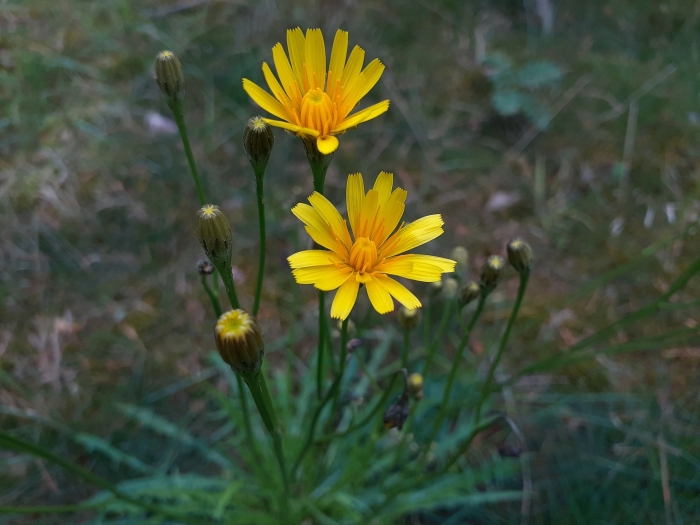Autumn Hawkbit
(Scorzoneroides autumnalis)
Autumn Hawkbit (Scorzoneroides autumnalis)
/
/

© qvaak
CC BY-SA 4.0
Image By:
© qvaak
Recorded By:
Copyright:
CC BY-SA 4.0
Copyright Notice:
Photo by: © qvaak | License Type: CC BY-SA 4.0 | License URL: http://creativecommons.org/licenses/by-sa/4.0/ | Uploader: qvaak | Publisher: iNaturalist |










Estimated Native Range
Summary
Scorzoneroides autumnalis, commonly known as Autumn Hawkbit, is a perennial herb native to a variety of habitats across Europe and Northern Asia, including meadows, pastures, and grassy areas. It is often found in well-drained, open environments, thriving in both lowland and upland areas. This species typically grows at a moderate rate to a height of 1-2.5 feet (0.3-0.8 meters) and features a rosette of lance-shaped leaves. The bright yellow flowers resemble those of dandelions and are highly attractive to pollinators, blooming from late summer into the fall. The flowers are borne on slender, leafless stems and can be quite showy, adding a splash of color to the landscape.
Autumn Hawkbit is valued for its ease of maintenance and its ability to adapt to a range of soil types, including clay, loam, and sandy soils. It is often used in wildflower meadows, naturalized areas, and as a component of pollinator-friendly gardens. While it prefers full sun, it can also tolerate part shade. Gardeners should note that it can self-seed prolifically, potentially becoming weedy in favorable conditions. It requires moderate watering and can tolerate periods of drought once established. There are no major disease or pest issues, but its potential for self-seeding should be monitored to prevent unwanted spread.CC BY-SA 4.0
Autumn Hawkbit is valued for its ease of maintenance and its ability to adapt to a range of soil types, including clay, loam, and sandy soils. It is often used in wildflower meadows, naturalized areas, and as a component of pollinator-friendly gardens. While it prefers full sun, it can also tolerate part shade. Gardeners should note that it can self-seed prolifically, potentially becoming weedy in favorable conditions. It requires moderate watering and can tolerate periods of drought once established. There are no major disease or pest issues, but its potential for self-seeding should be monitored to prevent unwanted spread.CC BY-SA 4.0
Plant Description
- Plant Type: Herb
- Height: 1-2.5 feet
- Width: 0.5-1 feet
- Growth Rate: Moderate
- Flower Color: Yellow
- Flowering Season: Summer, Fall
- Leaf Retention: Deciduous
Growth Requirements
- Sun: Full Sun, Part Shade
- Water: Medium
- Drainage: Medium
Common Uses
Border Plant, Low Maintenance
Natural Habitat
Variety of habitats across Europe and Northern Asia, including meadows, pastures, and grassy areas, both in lowland and upland regions
Other Names
Common Names: Jesenski Lavozub, Fall Dandelion
Scientific Names: , Scorzoneroides autumnalis, Apargia autumnale, Apargia autumnalis subsp. autumnalis, Apargia autumnalis subsp. vulgaris, Apargia autumnalis var. autumnalis, Apargia autumnalis var. vulgaris, Apargia taraxaci, Leontodon autumnale, Leontodon autumnale subsp. autumnale
GBIF Accepted Name: